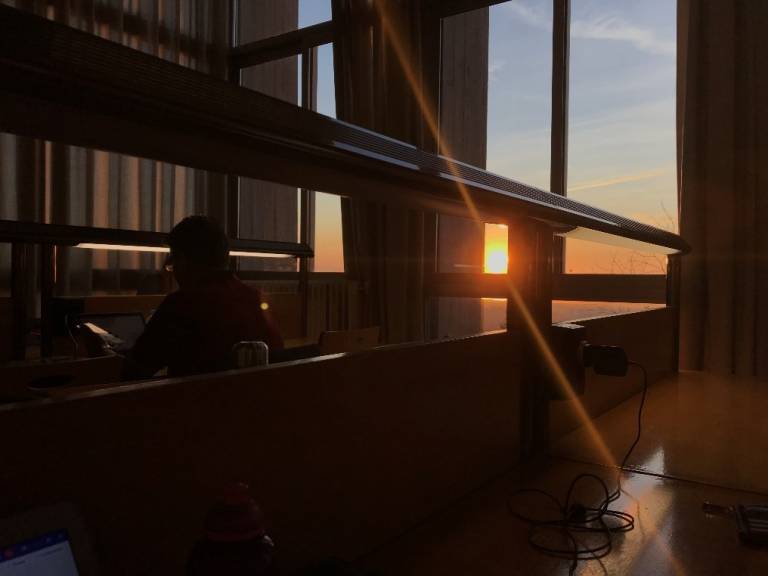Studying at the Universidad de Granada: Tips for your year abroad
9 March 2020
In her third blog Libby gives us her tips for doing your best on your year abroad.

The prospect of studying in a foreign language, in an unknown academic culture can be daunting: it certainly was for me. But now, I’ve got my results back from my first term exams and I can safely say that I passed all my modules! I took classes in the philosophy, anthropology and geography departments, and they were all fairly similar in their structure and the way they were assessed. Here are some tips for doing your best:
- Don’t be afraid to speak up in class
As a foreigner it can be really scary to speak in a class where you’re surrounded by native speakers, debating away at the speed of light, and using vocabulary you’ve never heard before. However, it is really important to put aside your fears of making mistakes or outing yourself as a foreigner. By participating in the debate you will greatly aid your language acquisition, and add to the discussion by bringing a foreign perspective and all the knowledge you’ve acquired at UCL. By asserting your presence, your classmates and professors will also be more mindful of you and perhaps slow down the pace when they speak sometimes, so you can follow more easily. Finally, in Spain, participation often counts towards your grade, so it is really important to speak up.
- Build rapport with your professors
Because participation and sometimes assistance are assessed, nothing is done anonymously. For this reason, it’s important to make sure your professors know you, by showing up to class, participating and sometimes attending office hours. Having a good rapport with a teacher can be the difference between passing or failing a module.
- Don’t study too hard
This might all sound like a lot of work, and although studying here isn’t a year long holiday, it also doesn’t require you to spend every night in the library. You will likely have more contact hours than at UCL (each one of my modules had 4 contact hours a week), but also a lot less reading and essay writing. Most modules are assessed by in class tests, participation, and a final exam. As long as you attend your classes regularly and revise for your exams, you shouldn’t have to worry too much. Studying abroad, after all, is about much more than just studying; you also want to experience living in the country, and that happens in many other places than your university campus.
Now that I’ve gotten a feel for how things work here, I’m going to put all of this into practice to really make the most of my second term in Granada, both on and off campus!
By: Libby Davies
 Close
Close

